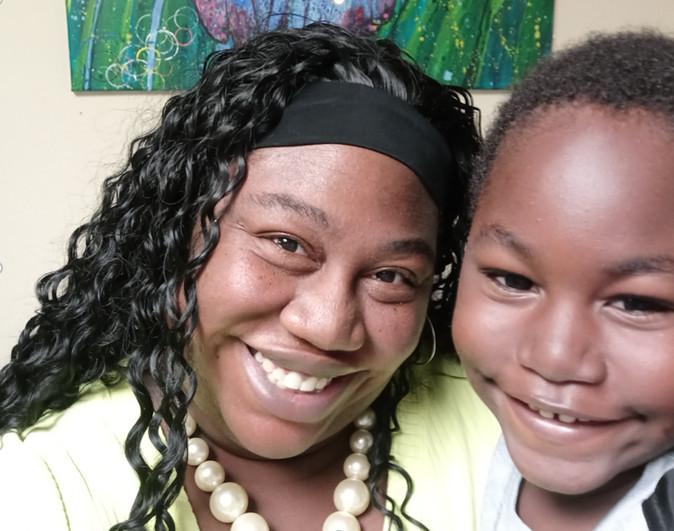Shari Jones gets an early start to her workday. As the program director for Family Promise of Gainesville (FPG), FL, her to-do list can be extensive. First, she will create trauma-informed training for volunteers and staff to better understand child protective factors and to know when to call the Department of Children and Families. Next, Jones will wrap up monthly grant reporting, pulling rental assistance numbers and housing outcome percentages. After, she will create gift baskets to thank five landlords who did not raise their rent during the COVID-19 pandemic and continued to work with FPG. Jones will also send notes to a few landlords whose support she hopes to cultivate.
The phone rings throughout the day. Jones is the point of contact for the area’s childcare vouchers distributed through the Continuum of Care (COC), so she is the first person to respond when community partners call with family referrals, or a person calls to directly ask for help. Each day brings a new challenge.
Today, Jones is advocating for a woman who was recently diagnosed with cancer. Just a few days after her diagnosis, her landlord informed the client that he had sold the building and she would need to move out within 30 days. According to Jones, the woman has a housing voucher for $800/month, but there are no units available at that price. Jones plans to call the local housing authority to increase the client’s monthly stipend.
Before starting with the Affiliate as a case manager, Jones had worked across the social services sector: with the county sheriff, the Department of Children and Families, and veterans experiencing homelessness. Since beginning her career, Jones observed the lack of resources for housing insecure families, compared to what appeared to be abundant resources for veterans experiencing homelessness. Jones wanted to work with families. Five years ago, she met the Affiliate’s executive director, Jayne Moraski, at a local COC meeting. The two clicked, and Jones joined Family Promise.
It was immediately clear that Family Promise was a flexible organization, both in the ways it could serve families and how it allowed staff to take care of themselves. Whereas in previous work she worked with 50 families a week, her caseload at FPG is five families. “Our smaller caseload allows us to tailor our programs and services to the people we serve,” says Jones.
To dive deep into a family’s circumstances can take some time. With a smaller caseload, Jones can stay a little longer in each visit, and she has noticed that a longer session can lead to strong connections between staff and families. “It isn’t formulaic, and we treat families holistically,” she reflects. “Our team tries to figure out what an individual family needs, and tailor the programs. It makes the programming and services more effective.”
Holistic case management requires understanding everything a family brings to the table, and how they got to the table to begin with. Jones works to examine situations from a trauma-informed lens and to extend the framework to her staff and volunteers. One topic of discussion is anger. “When someone is angry, we can’t take it personally. Someone’s anger towards you does not mean they don’t like you. We don’t know what they have already experienced, and we don’t know what triggered them to feel angry.”
When talking about trauma and anger with volunteers, Jones uses a metaphor of a boiling pot. “Imagine a parent is in our shelter and has applied to four jobs already, only to be rejected. They have just been notified that their fifth application was not successful. The heat was already turned up on the pot, and it was about to boil. You come into the room to announce that dinner is ready. They lash out at you. That anger is not at you. That is at their situation.” In those moments, according to Jones, it is important to give someone space and to not hold previous interactions against them.
For Jones, the care that staff gives to families makes an internal difference, as well. “I believe that the reason I am so effective at my job is because of the support and flexibility at Family Promise,” she says. “When you deal with people experiencing trauma, you can’t be expected to run around and go back-to-back to meetings. To do good work, I need to decompress, to take stock of how I’m feeling, and to take care of myself.” One of her preferred post-work routines is to make a cup of tea (usually black or apple cinnamon, and always hot despite the Florida summer), to sit in a dark room, and to listen to white noise for a few minutes. This practice helps Jones clear her mind.
Quiet moments are necessary given that working with families in crisis is a difficult job, made more stressful during the pandemic. “Most of the time people think you have to be strict and guarded to be a successful case manager,” she says. “To me, it’s the opposite. If I can show myself grace, I can show grace to others. My team and I truly care about each other. We are open books, and that warmth extends to the families we work with, the team members I manage, and how we treat ourselves.”
Jones had an 8-month-old son when she began at Family Promise, and now the six-year-old comes to work with her a few days each month. “Family Promise is like a second home to him,” says Jones. “If I can take care of my family, I can better serve the families in my community.”

